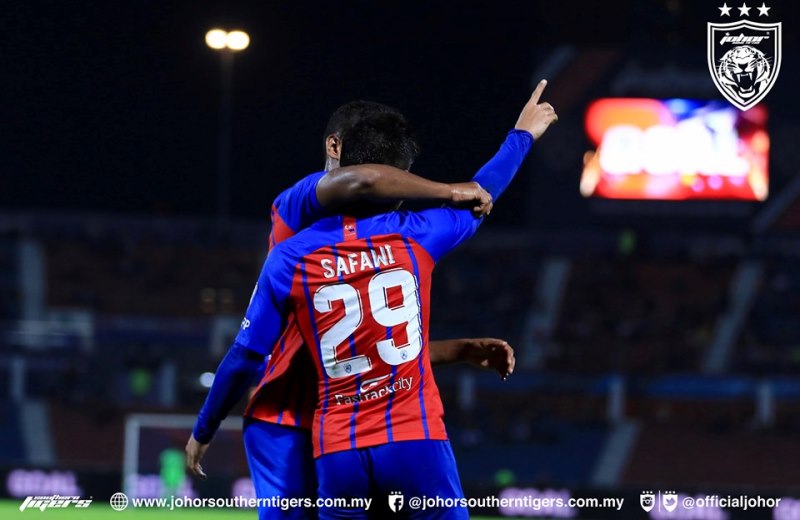 Fans have picked Johor Darul Ta’zim as the AFC Cup Club of the Decade in a poll conducted by the-AFC.com.
Fans have picked Johor Darul Ta’zim as the AFC Cup Club of the Decade in a poll conducted by the-AFC.com.
The poll results can be viewed HERE but let’s take a look again at the clubs that were nominated as the AFC Cup gets set for another decade of excellence.
Johor Darul Ta’zim
Malaysia
In a tournament that has been dominated by teams from the West, Johor Darul T’azim (JDT) stand as the sole team from the eastern region of the Continent to taste AFC Cup glory.
The side had endured a dismal showing in their debut as Johor FC in 2009, where they exited the group stage with just a point to show for their efforts. But it was a different team altogether who returned to the competition in 2015.
A dominant showing in the group stage where they topped Group F was followed by comprehensive wins over Myanmar’s Ayeyawady United and Hong Kong heavyweights South China SC in the knockout rounds before their semi-final against Qadsia SC was disrupted by the Kuwait Football Association’s FIFA suspension.
The final that followed saw the club face a daunting test in Dushanbe at a sold-out Pamir Stadium against Tajikistan’s FC Istiklol. Yet the Malaysian side rose to the occasion, with Leandro Velazquez’s goal enough to settle the tie and write JDT’s name into AFC Cup history.
Air Force Club
Iraq
Having won an unprecedented three consecutive AFC Cup titles between 2016 and 2018, Air Force Club’s run of victories is among the most impressive streaks in the Continental club game’s history.
The Iraqi side competed in just three editions of the tournament and won all of them, with arguably the most impressive run being the 2018 edition when they went unbeaten to lift their third AFC Cup trophy.
In 2016 they won the title largely on the back of the sensational scoring record of striker Hammadi Ahmed who netted 16 times, double the tally of the next highest goalscorer in that year’s edition. While in 2017 and 2018, goals were spread throughout the team with Ahmed unable to match his maiden campaign.
With Iraqi teams stepping up to the AFC Champions League in 2019, Air Force Club are no longer set to be participants in the AFC Cup – relief for the rest of the clubs involved!
Kuwait SC
Kuwait
If Air Force Club were the dominant side in the second half of the decade, then it is unquestionably Kuwaiti clubs who were the powerhouse of the earlier years. In particular, Kuwait SC, who had already tasted AFC Cup glory in 2009.
The club reached the final in 2011 only to be narrowly edged out by Uzbekistan’s FC Nasaf but would bounce back back stronger from the heartbreak at the final hurdle.
In the very next year, they returned to the final and blew away their demons from 2011 with a comprehensive 4-0 defeat of Iraqi side Erbil and repeated their efforts at the following edition with a 2-0 win over domestic rivals Qadsia SC.
The 2015 competition looked to be another successful year as they progressed to the semi-finals but due to the Kuwait Football Association’s FIFA suspension they were no longer eligible to compete in the AFC Cup. Nevertheless, their impact in the tournament’s last decade endures.
Qadsia SC
Kuwait
Like countrymen Kuwait SC, Qadsia were a part of Kuwaiti dominance in the 2010-2015 period of the AFC Cup. At the 2010 tournament, in their first of three final appearances, the club was edged out by Syria’s Al Ittihad on penalties and again in 2013 were defeated by Kuwait SC at the competition climax.
However, it proved to be third time lucky in 2014. After a goalless 120 minutes of football in the final in Dubai, Qadsia SC defeated Erbil on penalties to claim the AFC Cup title.
Qadsia looked a strong candidate to reach a fourth final the very next year but, as with Kuwait SC, the FIFA suspension for the Kuwait Football Association brought their 2015 campaign to an end at the semi-final stage.
Having returned to the AFC Cup fold in 2019, Qadsia SC and Kuwait SC will be looking to bring in another period of Kuwaiti football dominance in the new decade.
Al Ahed
Lebanon
At last year’s competition, not only did Al Ahed go all the way to the title unbeaten but they did so with just three goals conceded in the entire tournament and none in the knockout stage.
Man mountain Mehdi Khalil in goal was a big part of the Lebanese side’s success – and he was duly named the tournament’s Most Valuable Player – but the team also boasted a steely rearguard that included a doughty defence and uncompromising midfield enforcers.
Twice before Lebanese sides had reached the final when Al Ahed’s city rivals Nejmeh (2005) and Safa (2008) appeared in the competition’s showpiece event, but both fell short leaving Al Ahed to give their nation its first AFC Cup title.
Three years earlier, Al Ahed had already given warning of their capabilities when they went all the way to semi-finals, but were edged out by Air Force Club.– www.the-afc.com

































